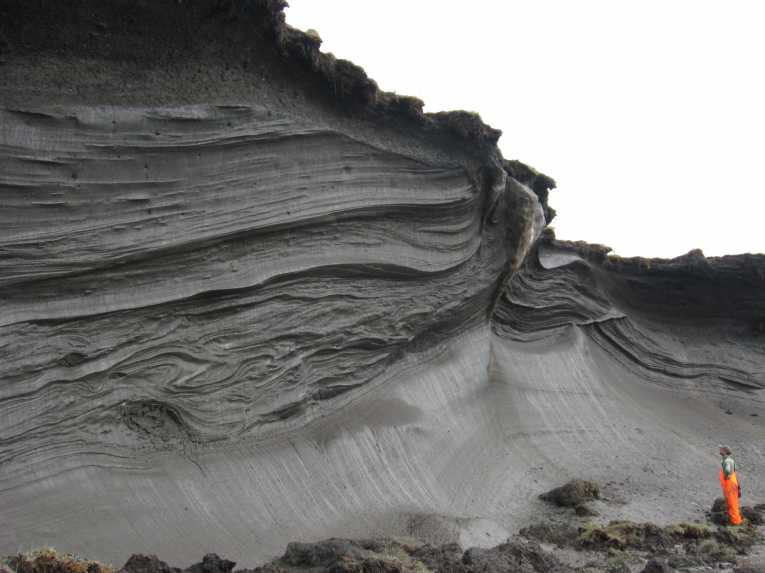Image Credit: © Michel Fritz, Alfred Wagener Institute (Scientist standing in front of coastal erosion at Hershel Island, Yukon Territory, Canada)
A quarter of the Arctic's permafrost coastline is suffering from erosion due to climate change. The impact on settlements, shipping, oil and gas installations and coastal infrastructure is likely to grow.
'Arctic coastal erosion is reaching up to 20 metres a year in places, though on average it is half a metre a year. What we are seeing is likely to affect enormous areas in the future,' said Hugues Lantuit, a geologist at the Alfred Wegener Institute, Germany's top polar science institution, and one of the lead scientists in the decade-long study. 'We have to reckon on rapid changes in a system that has been stable for millennia.'
As ice free periods increase due to global warming, there is a direct effect on the fragile polar coastline which is largely composed of frozen permafrost. Less sea ice cover and a shorter ice season allows wind and wave action to attack the previously ice-protected coastline, especially during the autumn storm season. Higher sea temperatures, and increasing air temperatures all add to a cocktail of effects which is shrinking the coast on average by 0.5 metre a year.
But erosion is extreme in some very vulnerable places like the Canadian Mackenzie River delta which is losing up to 20 metres of land a year in places. Also badly affected are some parts of Russia's Siberian coast and Alaska. Some of these areas are home to key oil and gas production areas such as the Alaskan Prudhoe Bay oil field, and Russia's largest natural gas reserves in the Yamal peninsula.
A third of the planet's 1.2 million kilometre coastline is in the Arctic, and the effects of erosion will be much greater here than in the middle latitudes of the planet. One major unknown is the impact of the vast quantities of carbon being flushed into the polar seas, having been previously locked in the frozen permafrost.
Thirty scientists from ten countries took part in the decade long study in a highly successful international collaboration. The full 180 page report is published in Estuaries and Coasts and online at, Arcticcoasts.org.










